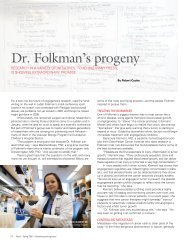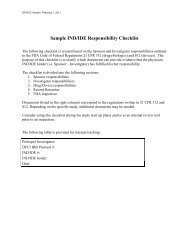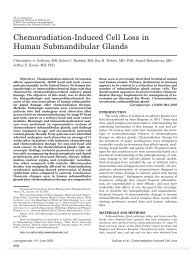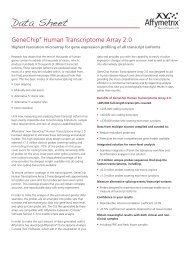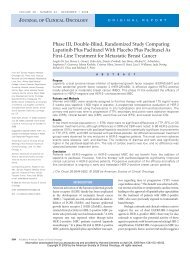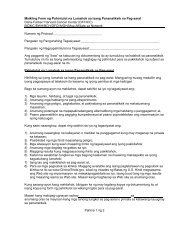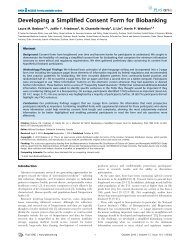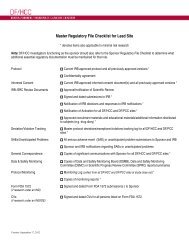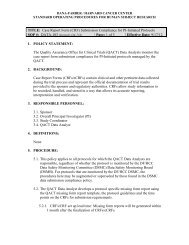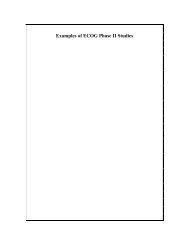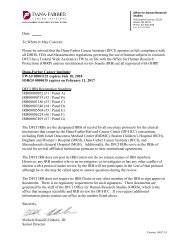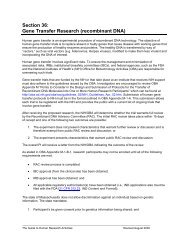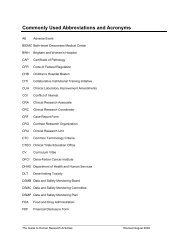Scientific Presentations Summer 2009 - Dana-Farber/Harvard ...
Scientific Presentations Summer 2009 - Dana-Farber/Harvard ...
Scientific Presentations Summer 2009 - Dana-Farber/Harvard ...
Create successful ePaper yourself
Turn your PDF publications into a flip-book with our unique Google optimized e-Paper software.
Patient Acceptability of the Electronic Self Report<br />
Assessment Cancer Program (ESRA-C) Version 2 to Enhance<br />
Communication Between Patients and Clinicians<br />
Tanya Harrison<br />
Mentor: Donna Berry, PhD, RN, AOCN, FAAN<br />
<strong>Scientific</strong> Advisor: Barbara Halpenny, MA<br />
<strong>Dana</strong>-<strong>Farber</strong> Cancer Institute<br />
Assessing cancer symptoms and quality of life issues is essential for excellent clinical<br />
care in cancer patients. The Electronic Self Report Assessment-Cancer program<br />
(ESRA-C) version 1 was demonstrated to be an efficacious and acceptable method to<br />
cancer patients for reporting symptom and quality of life information to clinicians.<br />
ESRA-C version 2 is a further developed program that contains additional symptom<br />
questionnaires and has been used in a multi-site sample in a randomized clinical trial<br />
at two comprehensive cancer centers. The objective of this analysis is to determine<br />
if ESRA-C version 2 is as equally acceptable to patients as version 1 and whether<br />
acceptability differed in various demographics. We evaluated the average score of<br />
the five acceptability questions with response options ranging from one (not at all acceptable)<br />
to six (very much acceptable) among patients that have completed ESRA-C<br />
version 2. We also assessed demographics such as age, gender, and computer literacy.<br />
Results showed that 40% of the sample (n=65) are female, 40% are age 60 or older,<br />
and only 74% of the participants use a computer often or very often. There were no<br />
differences in acceptability of the program between men and women, patients under<br />
or over 60 years old, and frequent or non-frequent computer users. Although specific<br />
measures of acceptability varied between the two groups, the average acceptability<br />
score was lower in version 2. We conclude that ESRA-C version 2 is not as equally<br />
acceptable to patients as version 1 due to the amount of time it takes for the participants<br />
to complete the report.



